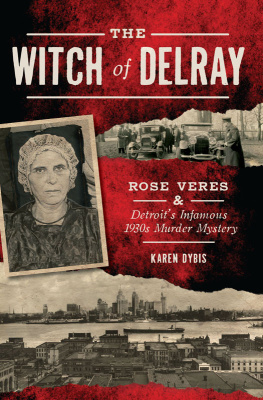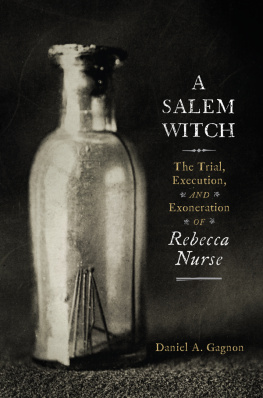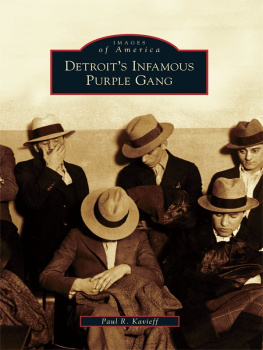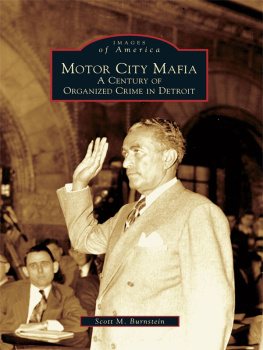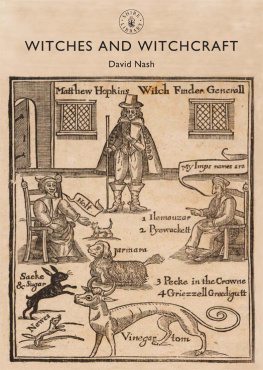

Published by The History Press
Charleston, SC
www.historypress.net
Copyright 2017 by Karen Dybis
All rights reserved
Front cover, left: authors collection; right: authors collection; bottom: courtesy of the Library of Congress.
First published 2017
e-book edition 2017
ISBN 978.1.43966.317.2
Library of Congress Control Number: 2017945016
print edition ISBN 978.1.46713.754.6
Notice: The information in this book is true and complete to the best of our knowledge. It is offered without guarantee on the part of the author or The History Press. The author and The History Press disclaim all liability in connection with the use of this book.
All rights reserved. No part of this book may be reproduced or transmitted in any form whatsoever without prior written permission from the publisher except in the case of brief quotations embodied in critical articles and reviews.
For Pete and Robin, so you may understand what Theodore Roosevelt meant when he said, Justice consists not in being neutral between right and wrong, but in finding out the right and upholding it, wherever found, against the wrong.
CONTENTS
ACKNOWLEDGEMENTS
Thank you to the Archives of Michigan and the Burton Historical Collection of the Detroit Public Library for providing a wealth of information for this book. Thank you to the families of John O. Whitman and Alean B. Clutts for their help with stories and photographs. Thank you as well to my family and friends for finding Rose, guiding me as I researched her story and listening as I tried to unravel her legal case.
This is a work of nonfiction. All quotes used in this book came directly from a newspaper, affidavit or court transcript. Certain words used in these quotes may affect modern sensitivities. But, after much thought, I have chosen to retain these words because they are historically accurate.
THE FALL
Detective John Whitmans eyes narrowed against the August sun as he traced the bodys fall to the Detroit dirt, imagining it ricocheting from the attic window to the neighbors clapboard siding to its final resting place on the muddy ground.
Whitman took an inventory of the alley before him. Two rundown bungalows. An open window. A ladder leaning against one of the houses. Tools and a toolbox scattered in the wet soil.
It was clear that Steve Maks body had hit the ground with force. An ambulance took Mak to Receiving Hospital, but Whitman would be surprised if the poor soul survived the night.
Whitman, conscious of his polished oxfords sinking into the turf, moved to the sidewalk. Nothing else seemed out of place in this typical Delray neighborhood, where each building was so close you could whisper in one room and someone next door would hear it.
He pulled a white handkerchief from his suit and swept the sweat from his broad forehead. The street was quietfor now. That gave Whitman time to think.
Some in the homicide department might question why he brought the busy squad to what looked like a handymans clumsy tumble. But the veteran lawman sensed this wasnt just another case. When the call came in, Whitman knew the Witch of Delray was at it again.
Someone, perhaps a neighbor, had been watching and waiting for this opportunity. A mysterious voice alerted police to another incident at 7894 Medina Street. How many deaths had there been? Seven? Ten? Whitman lost count.

Medina Street is a closed-off block near Jefferson Avenue in Detroit; Roses house would have been between the two trees. Authors collection.
Whitman scanned the approaching crowd. His gaze found Rose Veres, wearing a shapeless black dress and her customary knit cap. Her eyes met his, and he was once again struck by how their blue-gray color looked right through you. Some believed she had the power to hypnotize. Frightened neighbors gave Rose the nickname The Witch of Delray, and it stuck.
In his seventeen years on the force, Whitman had worked some of Detroits worst crimes. Domestic battles where lovers turned killers. Murderous arguments between territorial bootleggers. Gang warfare that left dozens dead. Whitman could walk away unaffected.
The cases that bothered him were the unsolved ones, like the Witch. Rumors about her had circulated in Delray for years. Neighbors claimed the Witch of Delray controlled the neighborhood, terrorizing men, women and children. Mak might be the latest victim, which meant Whitman had to secure the scene and fast.
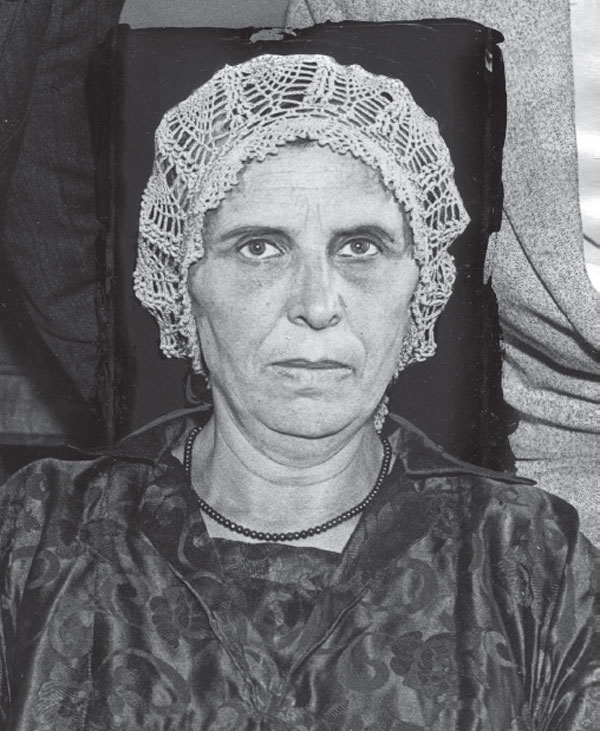
Rose Veres was known in her Delray neighborhood for keeping a tight leash on her boarders, treating them like her own children. Authors collection.
Detroit Police had made their share of runs to the Veres boardinghouse over the years. Sometimes, it was to drag her sons home or to calm an angry drunk. More often, it was to handle a death. There always was an answer as to why man after man expired unexpectedly. Pneumonia, suicide, heart attack, alcoholism. Boarders walked in but left in pine boxes.
Rose and her husband, Gabor, had opened their home to boarders years before as a way to make ends meet. Men, eager for good-paying factory jobs, had flooded Detroit. Running a burdoshazak was honorableif a man needed a bed and a family needed extra income, it makes sense to put him up. Going on the dole to pay your bills was shameful, even in Detroits Great Depression.
The Witch had been arrested once in 1925 after two boarders died under suspicious circumstances. No evidence was found, and no accusation could stick. Apprehensive neighbors claimed they were too afraid of the Witch to speak against her. She left police headquarters a free woman.
Gabor died in 1927, leaving Rose to run the boardinghouse alone. One cold January night, Gabor had closed himself in the garage to fix the family car, hoping to save the family a few dollars. He had succumbed to monoxide poisoning along with one of his friends. Neighbors whispered it was no accident, suspecting Rose had silently shuttered the door.
As a widow, Rose wore black as she went about her daily chores. She was a mother with three mouths to feed, clothe and get to school when they werent skipping it. She also was a business owner, getting up at 4:00 a.m. to get the men to work, washing clothes all day, fixing meals and cleaning until late at night.
Police kept tabs on Rose as well as her oldest son. Bill Veres, who had just turned eighteen, had been caught recently stealing from a neighborhood store. He was a skinny kid, standing only a few inches taller than his mother. He hovered around Rose like a dog, staying close to her elbow. Her other sons, ages fifteen and twelve, followed Bills lead. Bill, being the man of the house, may know more than he would like to admit, Whitman thought. Bill might need an alibi, and Whitman knew the sooner the police separated the brothers from their mother, the better.
Whitman turned his eyes back to Roses small bungalow. The question was how Mak, a well-known neighborhood figure, could end up face-first in the mud. Stepping carefully across the cracked pavement, Whitman knew the next step was rounding up witnesses. That was easier said than doneDelray wasnt the kind of neighborhood where people willingly talked to police.
Next page
